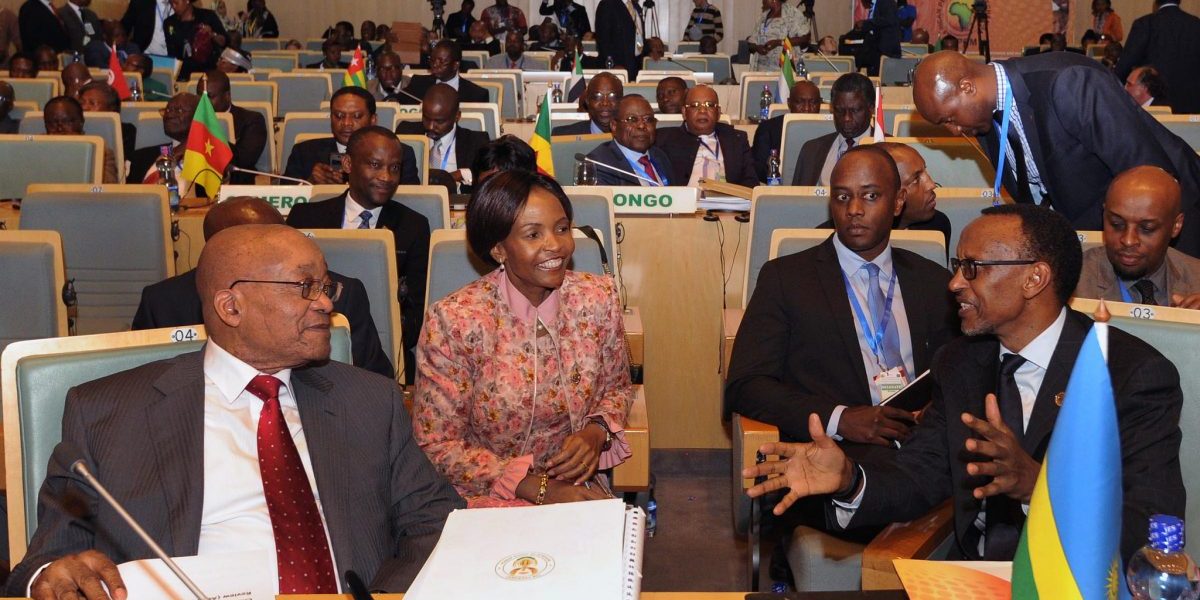This document, a central commitment of the states of the Organisation of African Unity and its successor, the African Union, guarantees the continent’s citizens numerous rights and freedoms.
The charter is more than a statement of rights. It is a lodestone for what Africa aspires towards. Basic “liberal” rights life, liberty, protection from slavery and degrading punishment, the right to trial by impartial courts, freedom of conscience, the right to receive information and participate freely in the government are included.
So are access to education and healthcare and the collective rights of cultural groups. In this document lies the basis for an Africa of justice, freedom and prosperity. So how does this tally with reality? Africa in 2007 has its success stories. Botswana can boast of having been a democracy since the 1960s.
About 11 of Africa’s states are ranked as free by the American think tank, Freedom House, granting their citizens both democratic political rights and civil liberties: a minority to be sure, but a giant leap from two in 1986.
Civil societies and activists across Africa are raising their voices, whether in calls for a new constitution for Zambia, for a firmer response to HIV/Aids in South Africa or opposing arbitrary land allocations to the politically connected in Uganda.
On the other hand, conflict destabilises parts of Sudan, Chad and the Democratic Republic of Congo. Thuggishness surrounds a disputed election in Nigeria and state-sanctioned violence batons opposition supporters in Zimbabwe.
An insurgency rumbles on in Uganda. Swaziland is ruled by an absolute monarch, and Angola has not had a presidential or parliamentary election since 1992.
Millions of Africans live as refugees or internally displaced persons, often without the bare necessities of life, and without hope. It’s impossible to accurately quantify routine patterns of abuse, particularly by the security forces, and our prisons are squalid. All this happens despite African Union member states having ratified the charter.
So does the charter mean much at all? It remains a statement of aspirations, but it is trapped in the compromises that characterise Africa’s institutions.
The African Union is premised on the belief that African countries share a destiny and kinship by virtue of being African. Geography and history, rather than values, are the ties that bind.
When this charter was conceived, electoral democracy was typically a hollow concept in Africa. Hence it says only that “every citizen shall have the right to participate freely in the government of his country, either directly or through freely chosen representatives in accordance with the provisions of the law”.
Notably, there is no explicit requirement for a multi-party system. This provided accommodation (indeed, justification) for the one-party systems at the time.
Martin Meredith in his The State of Africa writes that “out of a list of 50 African countries in 1989, almost all were one-party states or military dictatorships. Opposition parties were illegal in 32 states.
Elections, when held, served mainly to confirm the incumbent president and his party in power. In 29 countries, over the course of 150 elections held between 1960 and 1989, opposition parties were never allowed to win a single seat.”
Democracy and human rights in Africa are on the up today. Military governments, in particular, are out of favour and the AU has suspended countries in protest against coups.
But as long as the continent attempts to accommodate its authoritarians alongside its democrats and reformers, the human rights of ordinary people will be the losers.
For Africa to enjoy a future based on democracy and human rights, more needs to be done to promote these ideals. The charter needs reform to remove its ambiguities.
For example, it should clearly protect multi-party democracy. And rather than allowing every individual to “express and disseminate his opinions within the law”, it should guarantee a free press and specify that restrictions on expression cannot be used to stifle debate.
The continent’s democracies have a responsibility to raise the bar and to hold their fellow states to similar standards, to ensure the commitments on paper are matched in practice.
To do this, the continent’s free societies should form a “freedom caucus” within the AU, restricted to those countries practising genuine democracy and respecting human rights.
Some would, no doubt, regard this suggestion as violating the ideal of African unity. Maybe so, but unity is worthless, possibly dangerous, to Africa’s people unless it is underwritten by a common commitment to values.
A common continental commitment to values. That would be worth celebrating.








